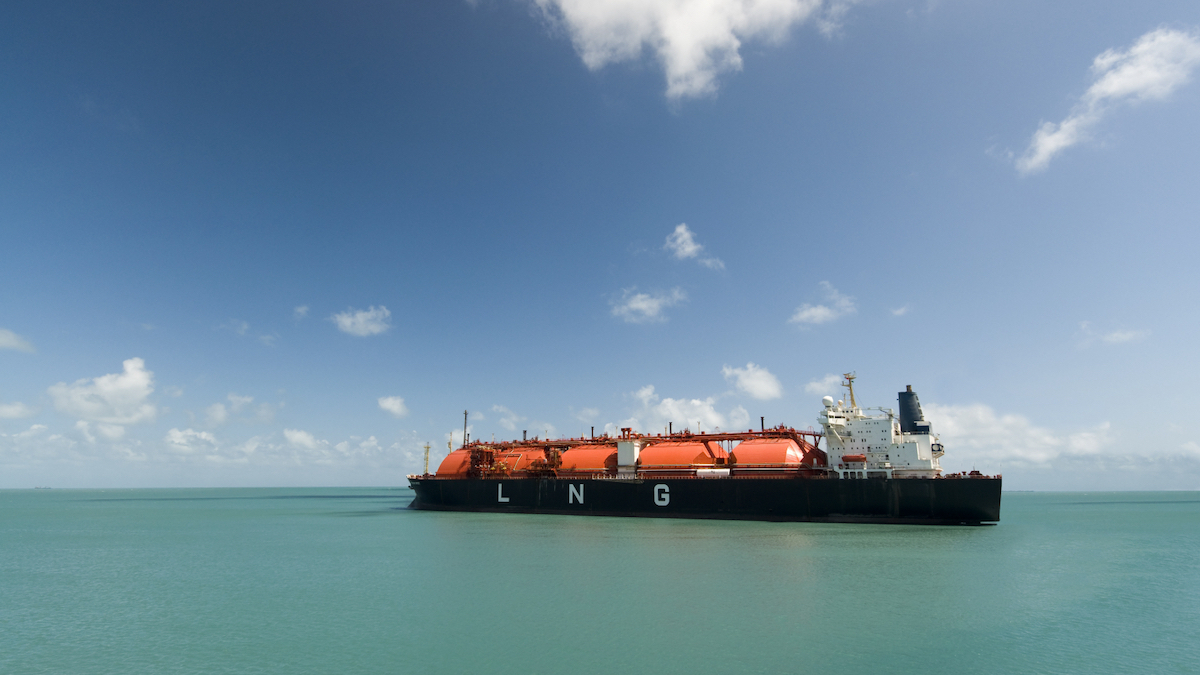Support strong Canadian climate journalism for 2025
Last year, the debate over natural gas in Canada became heated. Russia’s invasion of Ukraine and energy shortages in Europe gave the industry ammunition to push for more development of natural gas.
Natural gas is composed mainly of methane and is converted into a liquid known as liquefied natural gas (LNG) through a cooling process so it can be transported overseas. The fossil fuel industry considers LNG a tool for emissions reduction and a pathway to meet Canada’s climate commitments. It also sees it replacing coal as a power source in many countries.
However, activists argue that ramping up the production of a fossil fuel and exporting it does nothing for Canada’s carbon footprint or the world’s greenhouse gas emissions.
In Canada, most LNG projects, which take years to build, have been proposed or are under construction in Western Canada. Max Fawcett’s guest on this week’s Maxed Out wants to see Canada give the green light to companies eyeing the East Coast for production as well.

“It will take eight years to get an LNG project going, and [we] should start now,” Stewart Muir tells Max. Muir is a historian and the CEO of Resource Works, an organization dedicated to “leading respectful, inclusive and fact-based dialogue on natural resource development.”
Max has long been vocal in his support for pipelines in B.C. He describes the new Cedar LNG project near Kitimat and smaller Indigenous-led projects as “awesome, good projects” that he can't wait to see in service. However, he’s unsure about the ones proposed on the East Coast.
But for Muir, that demand is now and Canada should cash in.
“We need more energy of every type. We want it to be in the arc of history towards decarbonization,” he says.

To hear the entire conversation, listen to Episode 10 of Maxed Out on Apple Podcast, Spotify or your favourite listening app.
Maxed Out is made possible by listeners like you. If you’ve supported the podcast already, thank you. If you haven’t, click here to donate what you can to help us keep producing valuable journalism.
Got questions or comments? Email us at [email protected].
You can also follow us on Twitter @NatObserver.






Comments
"Resource Works, an organization dedicated to 'leading respectful, inclusive and fact-based dialogue on natural resource development.'"
In other words, a more diplomatic version of Kenney's War Room. Otherwise, a full-fledged fossil-fuel propaganda outfit, filling Postmedia newspapers with endlessly recycled talking points from CAPP.
Fawcett's support for more O&G pipelines in B.C. comes as no surprise. The former editor of Alberta Oil Magazine and Liberal Party cheerleader has previously argued for the Trans Mountain Expansion project and taxpayer-funded carbon capture:
Two fossil-fuel dinosaurs and climate change deniers (explicit or implicit makes no practical difference) on the wrong side of science and history taking up column space on The National Observer, Canada's leading media outlet on climate.
"Click here to donate what you can to help us keep producing valuable journalism."
No thanks. This is garbage journalism. I'll tune them out.
Observer: "Canada’s National Observer is the country’s most trusted voice in climate journalism."
The National Observer's Mission statement:
"We strive to lead in reporting on climate change policy and problems in Canada, leadership in the race to net zero, equity and Indigenous issues, to deliver stories that can be used to protect public health and human rights, press governments to take action to mitigate the threat of climate change."
"Canada's National Observer reports on climate, environment and society. Our award-winning journalists and columnists set the agenda on the climate conversation, with investigations, analysis and special reports."
Except The Observer's star columnist(s) supports fossil-fuel expansion enabled by new export pipelines. Go figure.